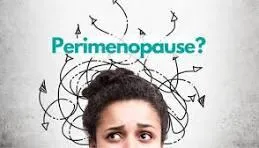
What the Experts Say About Perimenopause?
What Do the Experts Say About Perimenopause?
Perimenopause is one of the most confusing and often misunderstood stages of a woman’s life. Many women are told it “just happens” in their late 40s or early 50s, but experts now agree that changes can begin much earlier—sometimes as early as the mid-30s. So what exactly is perimenopause, and what do the experts say about this important transition?
What Is Perimenopause?
Perimenopause means “around menopause.” It’s the stage when a woman’s body gradually begins producing less estrogen and progesterone—the two hormones that regulate menstrual cycles and impact everything from mood to bone health.
This phase can last anywhere from 4 to 10 years, leading up to menopause (the point when a woman hasn’t had a period for 12 consecutive months).
Why Does It Happen?
The root cause of perimenopause is hormonal imbalance. As the ovaries slowly produce less estrogen and progesterone, other systems in the body—such as the brain, metabolism, and nervous system—must adapt. This shift is what causes many of the symptoms women experience.
Common Symptoms of Perimenopause
Irregular periods (shorter, longer, heavier, or skipped)
Hot flashes & night sweats
Sleep disturbances
Mood swings, anxiety, or irritability
Brain fog & memory lapses
Decreased libido
Weight changes (especially around the midsection)
Joint or muscle aches
What the Experts Say
Average Age of Onset: Most medical sources place the start of perimenopause around age 40–44. However, hormone experts like Dr. Stacy Sims emphasize that changes can begin as early as age 35.
Duration: While some women only experience perimenopause for a few years, others may notice symptoms for nearly a decade.
Lifestyle’s Role: Nutrition, exercise, stress, and sleep quality can influence how severe symptoms become. Experts stress that lifestyle adjustments can often lessen discomfort.
Why This Matters
Too many women are left in the dark about perimenopause, chalking up symptoms like fatigue, weight gain, or mood swings to “just getting older.” But perimenopause is a medical, hormonal shift—not simply aging. Understanding it empowers women to seek the right support, treatment options, and lifestyle strategies.
Moving Forward With Knowledge
Experts agree on one thing: perimenopause is not something to “just suffer through.” From lifestyle adjustments and nutrition changes to hormone replacement therapy (HRT) and functional medicine approaches, women have options.
Knowledge is power—and by learning what perimenopause really is, women can reclaim control, improve quality of life, and feel like themselves again.